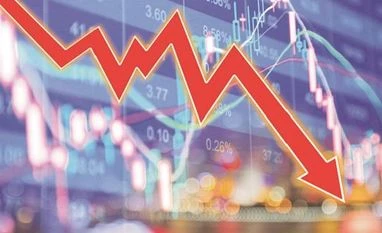China's national security law for Hong Kong and moves by the United States to begin withdrawing privileges enjoyed by the city under US law have unsettled investors.
They have also raised fears about the stability of the Hong Kong dollar's (HKD) 36-year old peg to its US counterpart, prompting local officials to issue several reassurances.
HOW THE PEG WORKS
The HKD is pegged in a narrow range of 7.75-7.85 to the US dollar. The Hong Kong Monetary Authority (HKMA) buys and sells the currency at either limit to maintain the range. Buying HKD boosts it by reducing its availability and raises the costs of betting against the currency. Sales do the opposite.
The HKMA has sold HK$106 billion ($13.68 billion) so far this year to keep a strengthening Hong Kong dollar within this range, according to Reuters' calculations.
To maintain the peg, official Hong Kong interest rates track U.S. monetary policy. The currency's movement within the band is influenced by differences between market interest rates in both. Hong Kong interbank rates are higher than their US equivalents, helping keep the HKD strong in spite of concerns about outflows related to the new law.
HOW VULNERABLE IS THE PEG?
There are fears that escalating US-China tensions could result in the United States potentially limiting Hong Kong banks' access to US dollars, thus jeopardising the peg.
A Bloomberg report suggested this week that US President Donald Trump's policy advisers explored that option, though the idea did not gain any traction.
Analysts say the White House cannot hurt the peg in Hong Kong, one of the world's largest U.S. dollar trading centres, without also hampering the greenback's hegemony as a global currency. Some call it a "nuclear option".
"For the U.S. dollar, exorbitant privilege is not risk-free," Geoff Yu, senior EMEA market strategist at BNY Mellon, said in a note. "The bottom line is that current rhetoric surrounding the Hong Kong dollar peg will likely stay as rhetoric."
Hong Kong also has more than $400 billion in reserves - six times the currency in circulation. The HKMA can also call on China's central bank for U.S. dollars, the city's top finance official said recently.
WHY THE HKD MATTERS
Hong Kong's economy has shrunk in its importance relative to the mainland since the territory's 1997 handover to China but its financial significance has grown. Any real threat to the peg risks undermining that.
With China maintaining tight capital controls, Hong Kong acts as a key financing conduit, hosting one of the largest stock markets in the world and acting as the biggest gateway for international investment in mainland stocks and bonds. It has also become one of the world's biggest currency trading centres and ranks third globally for U.S. dollar trading.
China's wealthy have put faith in the city too, with more than half of Hong Kong's estimated private wealth of more than $1 trillion coming from mainland individuals.
To read the full story, Subscribe Now at just Rs 249 a month
Already a subscriber? Log in
Subscribe To BS Premium
₹249
Renews automatically
₹1699₹1999
Opt for auto renewal and save Rs. 300 Renews automatically
₹1999
What you get on BS Premium?
-
Unlock 30+ premium stories daily hand-picked by our editors, across devices on browser and app.
-
Pick your 5 favourite companies, get a daily email with all news updates on them.
Full access to our intuitive epaper - clip, save, share articles from any device; newspaper archives from 2006.
Preferential invites to Business Standard events.
Curated newsletters on markets, personal finance, policy & politics, start-ups, technology, and more.
Need More Information - write to us at assist@bsmail.in
)